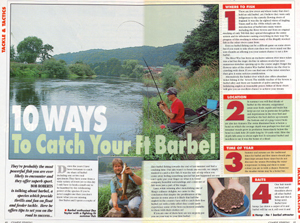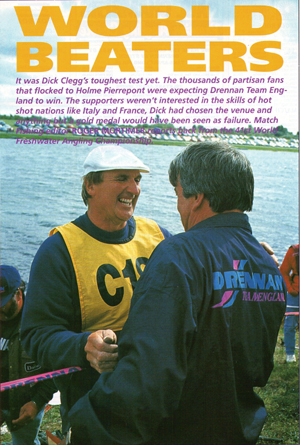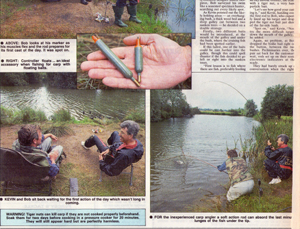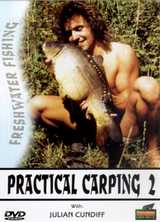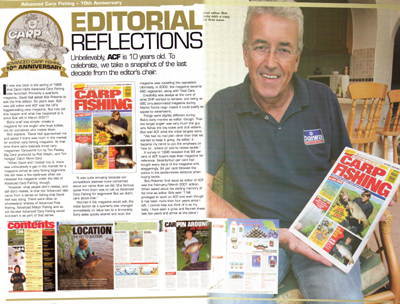So, You Want To Be A Writer?
Life’s A Box Of Chocolates
It’s a fair bet that my old English teacher would be gobsmacked to learn that since turning my back on the Percy Jackson Grammar School I’ve somehow risen to the heady heights of becoming a published author. I hated school. It’s not that I was thick, far from it, but my teachers failed to inspire me. What qualifications I did gain were to a great extent in spite of their efforts rather than because of them.
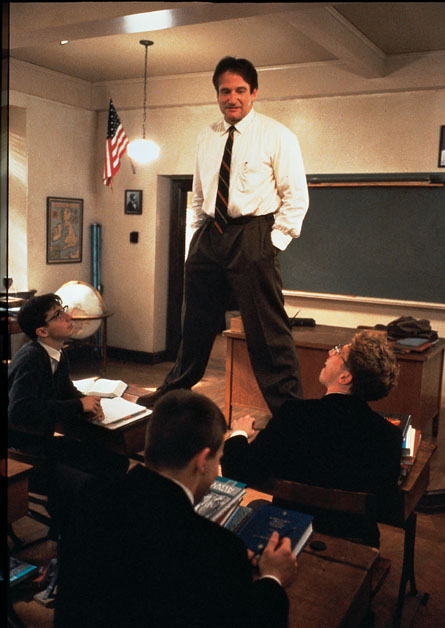 A harsh judgement you might say and I’d fully understand if my mentors claimed that I was the problem rather than the other way round because they’d be right to a degree. I was the problem.
A harsh judgement you might say and I’d fully understand if my mentors claimed that I was the problem rather than the other way round because they’d be right to a degree. I was the problem.
However, whenever I’ve faced problems with staff at work it was my job to dig down and identify the root cause, then work out how I might offer support and inspiration. Any agreed resolution had to work for both parties. If that failed you had to cut your losses and remove the problem.
Okay it may be Hollywood but I only have to watch Robin Williams in The Dead Poets Society to get motivated about education. I never encountered that kind of inspiration at school.
I just wish my teachers had made just a little more effort when I was a pubescent teenager. Had someone pressed the right buttons I could have truly amazed them. But would it have changed me?
I doubt it!
Here’s what they wrote in my school reports:
· A boy of ability but not always bothered to work
· His intelligence pulls him through but it is not a substitute for hard work
· Capable of original and imaginative work but daydreams in class
· Capable of surprisingly good work – I wish he would
· More concerned with playing the buffoon (which he does badly) than making an effort
· Obviously he is still taking life far too easily
· When left he dozes and draws happily. Lazy
· Inattentive
· Careless
So I left school at 15, moved away to London at 17 and married at 19. Some might say my prospects weren’t good.
Against this background you might imagine that I’d be the least likely guy on the planet to launch into a writing career and I guess I’d have to agree with you. Fortunately Forrest Gump was right when he said “Life’s a box of chocolates.” There’s far more to life than a formal education and far more to learning than attending school. Life is what you make of it.
Inspiration Arrives And A Journey Begins
One of my earliest inspirations was ‘Uncle Jack’, who read books all the time. He was pretty much self educated and would quote Shakespeare at any opportunity which was pretty cool coming from a former shop steward in a car factory.
We used to play chess while he delivered home-spun philosophy but something he once told me has stuck ever since. On his final day in school he went to thank his teacher, who replied, “Jack, I have taught you nothing except HOW to learn. It’s really up to you now whether you WANT to learn. Education doesn’t end when you walk out of the school gates.”
And you know? He was dead right.
 When I WANTED a GCE pass in a science subject I went out and got one, in six months flat, in my own time by my own efforts and ingenuity. I’d not done science since the age of 13 but at 23 I suddenly discovered I NEEDED a pass to progress in my job so I found the motivation. Self motivation is the best kind.
When I WANTED a GCE pass in a science subject I went out and got one, in six months flat, in my own time by my own efforts and ingenuity. I’d not done science since the age of 13 but at 23 I suddenly discovered I NEEDED a pass to progress in my job so I found the motivation. Self motivation is the best kind.
The same determination has served me well in angling. When I want to learn something I make it my business to find out. When someone shows me an idea I don’t simply accept it, I dissect it, I consider how it works, why it works and whether I can improve on it. That’s me. I realise everyone isn’t the same but it’s why I became a half decent angler.
As editor of Coarse Angler, Colin Dyson was a giant in his time. The fact that he was chairman of the PAC, wrote the angling column in my local paper, had a column in Anglers Mail and he ghosted books for the likes of Kevin Ashurst and Tom Pickering which elevated him onto a plane I could not help but to look up to.
But it didn’t stop me writing to him and picking his brains. After corresponding for a couple of years or more (these were the days before email) he wrote to me and invited me to write a series in Coarse Angler for the club match angler. Obviously I turned him down. Flattering as his offer was I couldn’t possibly write for such an esteemed title. Had he confused me with someone else?
The match writers of the time in Coarse Angler were Tom Pickering and Ian Heaps, both World Champions. You did get the odd guest column by Kevin Ashurst or Bob Nudd and it won’t have escaped your knowledge that these were also World Champions. How on earth could Bob Roberts, who crossed rods with the members of clubs as mighty as Toll Bar Central, Carcroft Village Club, Woodlands WMC, Sprotborough Village Club, Brodsworth Miners Welfare and Edlington Old Club, possibly offer his homespun philosophies alongside such luminaries of the game.
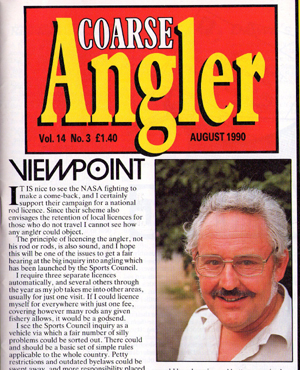 So Colin let it rest. A year later he was back, “C’mon Bob, I know you can do it. I don’t mind helping you. Do me a favour. Write three articles, just for me, I’ll have a look at them and give you some coaching. You don’t have to publish them…”
So Colin let it rest. A year later he was back, “C’mon Bob, I know you can do it. I don’t mind helping you. Do me a favour. Write three articles, just for me, I’ll have a look at them and give you some coaching. You don’t have to publish them…”
Well, I agreed to sit down and have a go, just to thank Colin for all the advice and guidance he’d given me. Off they went in the post and I heard nothing for a couple of months. Obviously they were crap. I knew they were. He was being kind by not replying rather than having to embarrass me.
Then one morning the phone rang. “Bob, it’s Colin. Just letting you know I got the articles…
“No, they weren’t rubbish, far from it, in fact the first one is in next month’s magazine!”
What? Did I hear right? “Colin, you can’t do that. They’ll murder me on the coach when they read that.”
But they didn’t. In fact the reaction was incredibly positive, which was a great relief as I was expecting to have the Mick extracted at the very least and kicked off the coach for being big headed at worst.
And so began a writing career that has swept me along on a tidal wave ever since. Without Colin it would never have begun. He found that spark within me and fanned the flames. Previously I just wanted to catch fish, that’s all. I never even dreamed of writing or anything else.
My relationship with Colin grew over the years. Alas he gave up the editorship of Coarse Angler and what a blow that was. Had he stayed there I’m sure the magazine would be alive today.
When he took ill it came as a huge shock to me. He had given me one of the biggest breaks of my life and I’m not the kind of guy to dismiss something like that lightly. I kept in touch on the phone and one day Katherine rang to ask if I would come over?
![]()
Colin had struggled on manfully until that point but he asked if I’d mind taking over his weekly column in the local sports paper for a while, ‘Just till I’m feeling a bit better…”
It was the most daunting challenge I had ever faced. I’d read this column on and off for nigh-on 30 years and he was asking me to write it under his name. “You’ll be fine Bob, I know you can do it.”
And that was it. We spoke often but I never saw him again. Colin had bequeathed me his column. Ten years on I’m still banging out 1500 words a week for the paper and I seldom press the send key without thinking of him. The competition he ran for club match anglers still lives on. I just make sure they all know they’re fishing for the Colin Dyson Memorial Trophy.
We should all respect our mentors.
End Of An Era
After Colin left, Coarse Angler struggled on for a short while in the hands of Jim Baxter. Colin and Jim did not see eye to eye and I’m being generous here. It was Colin’s worst nightmare. I was in Colin’s camp so it quickly became evident that it was time for me to move on.
For some while I’d been feted by David Hall and the door to switch camps and write for Coarse Angler’s biggest rival was wide open. Okay, it’s not exactly on a par with the Jolean Lescott, Man City and Everton saga but in those days you only wrote for one magazine. Loyalty was paramount and you simply weren’t allowed to churn out the same regurgitated pap in every single publication willing to take it as appears to happen rather too often these days. If you wrote for Colin you did it exclusively. It was as simple as that.
Colin and David fought like cat and dog with each other through their editorials. They clearly had opposing viewpoints on many subjects yet I found them both to be charming men. They called a spade a spade and if they had anything to say you can rest assured it would be to your face.
I liked that a lot. Still do. I can’t be doing with folk who are nice to your face and then stab you in the back. But it was difficult playing pig in the middle some times.
Shortly before I left Coarse Angler I was having a pint in the Rowing Club at Evesham after fishing a press match on the Avon. I’d spent quite a while talking with David and we’d arranged to meet up for a meal with our wives later that evening.
Just as I was leaving Jim pulled me to one side and said, “I want you to promise me you’ll never write for that man…”
Well, there’s a final nail in every coffin and that, for me, was it. I took no persuading after that to switch camps. It was a good move, too, because Coarse Angler’s days were numbered. From being the biggest selling fishing magazine in the UK, the only angling magazine with an ABC audited circulation figure, it went downhill rapidly and soon ceased publication. Sometimes there’s no need to go fixing what isn’t already broken.
Let The Fun Begin
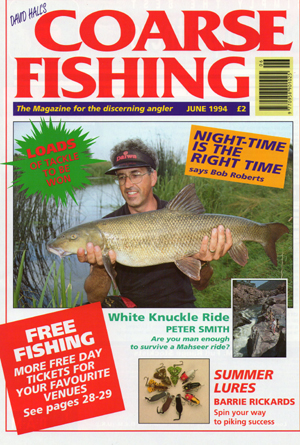 Writing for David opened up a whole new world of opportunity. David’s style in those days was light years removed from the very professional and businesslike organisation he runs today.
Writing for David opened up a whole new world of opportunity. David’s style in those days was light years removed from the very professional and businesslike organisation he runs today.
Sat in what is now the guest bedroom in his home, but was then an attic which doubled as a bustling little office housing desks, computers, fax machine and all the other trappings, he topped up our Scotch glasses and with a sweep of the arm he embraced the room and said, “Look at this Bob, we might not be the most professional set-up but we have lots of fun!”
And they certainly did. If you were in David’s team you knew about it. He was generous to a fault.
David is a very good friend to have and with the support of Cherry he entertains like a king. I’ve lost count of the times I’ve stayed at the house. I was returning from a fishing trip one evening and dropped by to leave some photographs.
“Oh it’s great to see you, Bob, come in and have a drink.”
“I’d like to David but I’ve been fishing for the past couple of nights and I need to get home, have a bath and get changed.”
“Don’t worry about that, come in. By the way, we’ve a dinner party tonight and Riva’s had to drop out. Would you mind staying and balancing the numbers?”
“David, I’ve only got the clothes I stand up in.”
But mere trivialities like that were nothing to David, who always looked through the clothes to find the man.
I suppose I wrote some of my best work for David. In those days we had writers with genuine character in the magazine, blokes like Geoffrey Bucknall, Ron Lees, Richard Wade, Mike Winney, Chris Binyon, Brian Morland and Vick Gillings, to name just a few, blokes who wrote about real life and the fun of fishing rather than how to tie a knotless knot. The content of my column was not that dissimilar to this book. It told more of where I’d been fishing, who I’d met than what or how I caught and it was an absolute pleasure to write. With David you got real freedom.
You also got tempting offers.
“Look Bob, when are you going to give up that job of yours and come and work with us?”
My God it was tempting. But I’ve never been sure that working full-time in angling would have worked for me. Deep down I reckon it would have ruined my enjoyment of the sport and I simply couldn’t risk that.
Writing for David meant that I could drop the odd article into Match Fishing and Advanced Pole Fishing as well as Coarse Fishing. It also opened up an opportunity to use my photographic skills when I did several commissioned shoots for him.
For example I was Match Fishing’s official photographer at the Home Pierrepont World Championships and having a press pass meant I could get right down to the waterside. I was the first person to shake Bob Nudd’s hand and congratulate him when the whistle went. A priceless memory and I got a hell of a kick out of seeing my pictures splashed across the front covers of several magazine in the coming months.
I also got to cover other big events, too, not to mention shooting features on behalf of the magazine with Denis White and that rising star Alan Scotthorne. They were heady days.
A Reality Check
When you’ve been writing for a while and folk begin to recognise your face, life does change, if only slightly. Maybe it’s not in quite the same way as if you won ten million pounds on the Lottery or you have a string of number one hits but people do begin to treat you differently. Total strangers come up and talk with you as if they know you and they do to a certain extent. By reading your articles they’ve been fishing with you if only in spirit.
Unfortunately the facet of life that a writer reveals through his fishing articles is normally just a glimpse of who he actually is. What did the Waterboys sing, “I saw the arc, you saw the whole of the moon”.
Readers automatically think you fish seven days a week. Most are shocked to learn that you have a full time job but the reality of angling is that it pays pretty poorly. Full-time anglers don’t buy mansions, luxury cars, Armani suits or attend film premiers. In the vast majority of cases they eke out a living that has no pension plan or health care benefits. And it’s a young man’s game.
It can be a sad life, too.
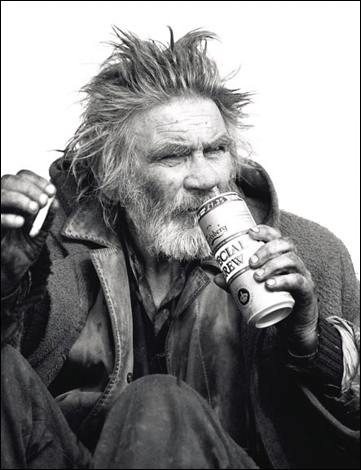 The concept of the full-time carp angler intrigues and horrifies me at the same time. Okay, I can buy it if someone decides to take a year out, a gap year, say, but beyond that it strikes me as a sad existence. Who on earth chooses to live in a tent with only other men and boys for company? How many cans of lager can a man drink or how many funny cigarettes can he smoke before realising that this is not a life? And what on earth do you do in the winter?
The concept of the full-time carp angler intrigues and horrifies me at the same time. Okay, I can buy it if someone decides to take a year out, a gap year, say, but beyond that it strikes me as a sad existence. Who on earth chooses to live in a tent with only other men and boys for company? How many cans of lager can a man drink or how many funny cigarettes can he smoke before realising that this is not a life? And what on earth do you do in the winter?
I take solace from the fact that I’ve yet to meet a female full-timer.
Few anglers make enough out of writing, sponsorships or match winnings to even pay income tax. Mostly it is classed as ‘earnings from a hobby’.
Do the sums. Let’s say half a dozen anglers get to write a weekly column in each of the weekly papers, they can then top up their income by writing articles for the monthly magazines but how many times can they appear in each and come up with good material. It’s seldom more than once or twice per month at best. So that’s maybe 75 articles a year paying what? £50 to £150 tops. Don’t forget we’re talking about guys who are right at the top of the tree.
No wonder the rest live in tents!
If you’re way down the pecking order you might think you’re doing well with a regular article in a regional angling paper and getting your face in the glossy monthlies occasionally but it don’t amount to a hill of beans if you have a mortgage to meet. You’ll be lucky to make a couple of thousand pounds in a year and that’s before your expenses. It won’t keep a car on the road and you can’t do it without one, or a good camera, a computer and so on.
That’s why most angling writers have a full-time job and as far as I’m concerned it’s fine by me. Writers produce their best work when they want to work not when they have to.
Opportunity Knocks
I’m optimistic enough to think we all get a lucky break now and then. When Kevin Maddocks released the Carp Fever trilogy of videos on the back of his immensely successful book of the same title I had an idea that made a lot of sense, well at least to me it did.
My profile was building nicely in the match world but I still loved other kinds of fishing. Yorkshire carp were as rare as rocking horse droppings in the era I grew up in so I’d actually caught very few and even these were caught by accident while targeting other species.
I put it to Kevin that we could create some good publicity for his videos if I took him pole fishing and in return he showed me how to carp fish. We’d offer this to Angling Times who could run successive centre page colour features on the two days.
Kevin liked the idea and more importantly, so did the Times which was in a process of reinvention under new editor Keith Higginbottom.
Kevin proved to be a pretty useful angler with the pole and caught loads of fish. The following day was my turn. We fished at Linear Fisheries (now Great Linford Fisheries), just outside Newport Pagnell. Len Gurd ran the place and Len had actually shot much of the footage there with Kevin so it fitted perfectly. To cut a long story short, I caught my first carp (by design) to order under the tutelage of Kevin.
With a couple of fish in the can the pressure was off and the day turned into a bit of a social, which was good because it would have been a pretty tall order to catch under pressure in front of an audience that included, Len Gurd, Bob Baldock, Roy Parsons, Kevin Maddocks, a journalist, a photographer and various others like Tim Hodges who just called by for a chat. That afternoon we had a ‘royal’ visit from the editor himself.

My page editor was a very young 'Rich' Lee - his first break in the paper he was to edit in the future
Keith Higginbottom hadn’t come over just to see how things were going. He had business in mind and once he’d secured Kevin’s agreement to become the Times’ new carp columnist he collared me and asked whether I’d be interested in writing a column as they were going to re-launch the junior page.
Chances like that don’t fall into your lap every day so I snapped his hand off and joined the team. It didn’t pay much but I was happy just to be on board and the column lasted four years until it was re-invented again, this time with a much younger approach, when Matt Hayes took over in his ‘Yo, keramba! Hey dude (baseball cap on backwards), it’s Matty’ period. Perhaps it was felt that I’d look a prat wearing one and spouting teenage vernacular whereas Matt wouldn’t!
Still, it did him no harm.
Brought To Book
There’s a certain inevitability that once you get into the swing of writing articles you’ll eventually want to write a book. When you’re at angling shows the question, ‘When are you going to write a book, then?’ will begin to crop up with increasing regularity. After a while you begin to believe there’s a demand.
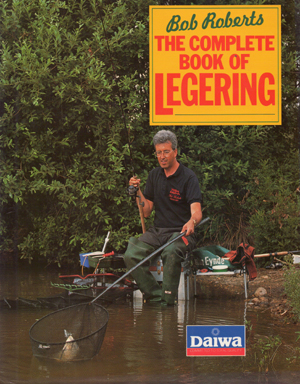 My stock response was that, one day, maybe, I’d write one. But when Allan Haines, a former editor of the Angling Times approached me and suggested it was about time I got around to writing one I had to give his advice some serious thought. Allan had already published a couple of books with David & Charles and he suggested that I might approach them with a synopsis.
My stock response was that, one day, maybe, I’d write one. But when Allan Haines, a former editor of the Angling Times approached me and suggested it was about time I got around to writing one I had to give his advice some serious thought. Allan had already published a couple of books with David & Charles and he suggested that I might approach them with a synopsis.
For some while I’d been mulling over whether I could produce a technical work on legering. Certainly there was a gap in the market and I genuinely believed I could fill it.
From there on things moved rapidly. David & Charles responded positively, my synopsis was accepted, contracts were exchanged and I had just five months to deliver the finished product, 60,000 words, 80 line drawings, 60 black and white images and 20 in full colour.
The only major drawback was that I neither owned a computer, nor had I the faintest idea how to work one. Alan Sugar fixed all that.
I’ve never been so frightened nor worked as hard in my life. You don’t just write a book and that’s it. Oh no. There’s a whole process of editing and revision, guest chapters, permissions, to-ing and fro-ing with the manuscript, shooting the pictures, finding an artist, briefing him, explaining to a non-angler what you’re trying to get across to the reader, layout, covers. It was exhausting yet exhilarating.
The result was ‘The Complete Book Of Legering’. Clutching the first copy to my chest was like holding a new born child. But who on earth would buy it. The publishers had gone ahead and printed 6,000 copies which is an awful lot for an angling book.
And what would the critics make of it?
I needn’t have worried. The reviews were astonishingly good.
Barrie Rickards worte, “The best book ever written on legering…the sheer breadth of coverage is staggering. Whether you are a match angler or a specimen hunter, it’s all in there.”
Coarse Fisherman Magazine said it was without doubt the best book ever written on the subject.
You would imagine that I would be ‘over the moon’, to use football parlance, but if I am to tell the honest truth I was simply relieved. And copies sold like hot cakes.
 David ran a readers offer in Coarse Fishing offering signed copies of the book at its full retail price and sold nearly 500 off the back of one advert. It was astonishing and the first print run quickly sold out. And then David & Charles dropped a bombshell. They were no longer proposing to publish any more angling books, therefore there would not be a reprint. Nor would I be able to publish any further books through them even though my contract demanded that I had to show them, and give first refusal on, any other manuscripts I produced.
David ran a readers offer in Coarse Fishing offering signed copies of the book at its full retail price and sold nearly 500 off the back of one advert. It was astonishing and the first print run quickly sold out. And then David & Charles dropped a bombshell. They were no longer proposing to publish any more angling books, therefore there would not be a reprint. Nor would I be able to publish any further books through them even though my contract demanded that I had to show them, and give first refusal on, any other manuscripts I produced.
This was hugely frustrating, not just for me but also for the host of people who would turn up at shows or write to me asking where they might get hold of a copy.
When a Polish publisher asked if I might allow him to re-publish it Poland my publishers said okay, but they’d need £1,000 from me. Bearing in mind books sell in the Eastern block for about £3.50 and they were only offering me £750 in the first place it was an opportunity I couldn’t afford to take.
And The Breaks Keep Coming
Without doubt my biggest break in writing came when David Hall rang out of the blue and invited me down to discuss the launch of a new magazine, ‘Write down a few ideas on what you think we should put in it and come over for lunch on Sunday’. By Sunday evening I was installed as the launch editor of Advanced Carp Fishing. Julian Cundiff was to assist me and a scary new project beckoned.
Bearing in mind I was already writing a weekly column in Angling Times, compiling their weekly form guide for the North East, keeping up the local paper column plus holding down a full time job, any right thinking individual would have said, “Sorry David, I just can’t fit it in.” But a chance like this is not something you turn down lightly and the bonus was that I would work freelance and it would only be published quarterly.
The first issue was cobbled together with the help of Alan Barnes and sold remarkably well. My brief for Advanced Carp was to create a magazine for the guys who buy boilies rather than those who make their own. Key constituents were to be how to, where to and what with. I’d like to think we delivered.
Such was the response to the first issue that an immediate decision was taken to increase production from quarterly to bi-monthly, in other words another 50% increase in my workload.
 A year in and we were no longer just the new kid on the block, we were easily the best selling carp magazine in the UK if the figures I was being shown were true. This caused a degree of consternation in the Paisley camp. Carp World had enjoyed everything its own way for a long time and to some extent the knives were out for me. ‘Donny Bob’ I became in the pages of Black Lizard and all manner of lurid tales were told but I loved the attention and the crazy thing was that both magazines were good for each other.
A year in and we were no longer just the new kid on the block, we were easily the best selling carp magazine in the UK if the figures I was being shown were true. This caused a degree of consternation in the Paisley camp. Carp World had enjoyed everything its own way for a long time and to some extent the knives were out for me. ‘Donny Bob’ I became in the pages of Black Lizard and all manner of lurid tales were told but I loved the attention and the crazy thing was that both magazines were good for each other.
My market was very different from Tim’s. I wrote for the beginner, he wrote for the more advanced carper which meant I was recruiting his next batch of readers but each time he poked fun at me in his magazine it was as good as a free advert so I would deliberately taunt him in my editorials just to provoke a response.
Readers could easily get an impression that we hated each other when nothing was further from the truth. I have great respect for Tim as an angler and his influence on carp fishing has been massive. Through Carp World he pumped oxygen into the lungs of a fledgling market that was at best a cottage industry. Today it is worth many, many millions of pounds a year and he takes his cut from that success through advertising revenue and publishing spin-offs.
Like David Hall, Tim barely had two ha’pennies to rub together when he started and they’ve both ridden the same roller coaster. Together they’ve influenced and shaped the industry we see today. It pleases me to see them both doing well.
Unfortunately Julian’s position became pretty much impossible because he had a foot in both camps. You cannot really play for Man Utd and Chelsea at the same time and give your best to both, can you? Given a straight choice, write for us or Tim, he chose Tim and I respect him for that. They serve each other well.
I came into this game in an era when writers were practically tied to titles. Team players had to show commitment and loyalty and they had to believe in the team they played for. It came as no surprise to me when Julian chose Tim’s team over ours, after all, Tim effectively made Julian, but my demand for exclusivity didn’t sit well with Julian as he believed he should be in every magazine and could see no reason why things had to change,
“When I’m on the cover of a magazine it sells more copies, Bob!” He told me. But it couldn’t go on. Losing Julian’s fan base was a risk I was more than prepared to take and we parted company.
My feelings towards Julian have changed over the years. I know of no other writer who has remained quite so consistent in his approach and you get exactly what it says on the tin. Like Chianti he doesn’t travel well so he’s ground out a writing career based on a handful of waters close to his Yorkshire home, catching the same old fish while proffering the same basic, homespun philosophy – tie this to that and stick it here with a kilo of Trigga Ice. Yes, his stuff is repetitive and heavily biased towards his sponsors, but what the hell, someone has to provide this service to novices and there is no one currently better at it than he is.
Perhaps I’ve been a critic of the genre because I was born with a cynical streak, I mean, how convenient is it that someone asks a question when the answer lies in a newly launched product produced by a sponsor? But like several other editors, I have encouraged him to write those Q&A’s and paid him for doing so, which probably makes me the biggest hypocrite on the planet, but with the benefit of hindsight I can see there is a clear need for a Julian character in the sport. If he didn’t exist we’d have to invent him, after all, doesn’t every magazine on the newsagent’s shelves have an Agony Aunt column of some description?
It works in everything from lads mags to gardening rags, from computing to the plethora of women’s interest titles. So why not angling?
Credit were it is due, Julian doesn’t only provide paid-for answers, he still replies personally to anyone who bothers to contact him and I’m sure he has to contend with a fair number of wind-ups for his troubles.
How, and indeed why, he continues to punish himself with this relentless pace is the only thing I struggle to comprehend. Could you hold down a full time job, write umpteen articles a month, answer questions from any budding angler in the land, cram in a book or two, shoot a few videos, keep fit, watch wrestling, follow Formula One and attend rock concerts and still find time to go fishing three or 4 times a week? I simply don’t know how he manages to find the time.
But good luck to him and long may he find the energy to do it.
When asked what I achieved in my time as an editor I like to feel that I influenced a change of emphasis in carp magazines and carp writing. When we launched the average carp writer relied on a small library of pictures that were used repeatedly – their medals of honour, if you like. Most articles were either reminiscences or technical. Neither required the writer to have set foot on the bank side in the past year or more.
I pushed my writing team towards creating ‘live’ articles. I wanted the articles to be pictorial and instruction led. It barely mattered if the angler caught a fish providing he or she was ‘in-session’ during the article as this is most relevant to what the reader needed to know.
I think it’s fair to say that the majority of articles are now presented in this format.
 I stayed at the helm of Advanced Carp Fishing for six years. Where those years went I’ll never know any more than I can understand how my wife put up with it but I eventually became a victim of my own success.
I stayed at the helm of Advanced Carp Fishing for six years. Where those years went I’ll never know any more than I can understand how my wife put up with it but I eventually became a victim of my own success.
By now there were five major carp titles. The weekly Carp Talk, Carp World and Crafty Carper published by Tim, plus Advanced Carp Fishing and Total Carp which were published by David. On the tails of these came Big Carp, The Carp Society magazine, Carpology and other small-scale operations. Lately EMAP has stepped into the fray with a monthly carp magazine.
No-one could have foreseen that in 1995 when we launched Advanced Carp Fishing. My initial sales target was a mere 6,000 copies which I believe was pretty similar to what Carp World was selling in 1995. At its peak we hit something like 25,000 sales in spite of the fact that the number of titles on the newsagents shelves had multiplied.
The combined annual sales of all the dedicated carp titles before we launched was probably a fair way short of 200,000 copies. Today I’d hazard a guess that it is now getting close to a million copies every year and there is still a thirst for knowledge to be met.
There was no logical business case for maintaining Advanced Carp as a bi-monthly, it had to go monthly, at which point I faced a straight choice, work on the magazine full-time or give it up. My mind was made up at a planning meeting where Simon McKewon, a non-angler, was telling me what the content of MY magazine should include. I had been in charge for nearly six years and there’s only so many ways you can describe the tying of a Palomar knot or how to make a pop-up. I wanted to take the magazine forward, to become more advanced, but when a guy like this can stand in your way it is time to move on. I decided to give David six months notice in order that he might find the right man to carry on the job. It didn’t prove easy.
Jim Foster took over temporarily. Now Jim is a guy I first met at the Carp Society Conference in Dunstable. In fact he was taking tickets on the door when I was collared by Jim and his mate. They were both as keen as mustard to get into angling, desperate to become writers. How should they go about it? As best I could, I gave them the benefit of my experience. His mate was Colin Davidson, now freelancing and doing stuff in Anglers Mail. I think they’ve done okay, don’t you?
Jim’s rise at DHP was meteoric. Both he and Colin took excellent photographs but Jim had an eye for design. Catchmore Carp sank under his stewardship but he used that experience to turn Total Carp Fishing into a huge success. I have to take my hat off to him for both the comeback and the quality. Total Carp raised the bar for all carp magazines.
Mind you he wasn’t always the easiest guy to get on with. Take a kid from a middle class background, send him off to university to get a degree in politics, breed in a competitive streak and then promote him to magazine editor when he’s barely out of short pants and he’s going to turn out a bit cocky, “You don’t have a degree, do you Bob?” He would taunt.
It’s fair to say we clashed on a number of occasions, mostly over him nicking ideas and writers from me, but we had this huge sibling/ alpha male rivalry going on and Jim was forever vying for David’s affection. He got it for as while as it happens, by the bucket load and rightly so; his contribution to the success of DHP shouldn’t be under-rated. I’m told he began to mature quite nicely in the end but like many ambitious anglers before him and since, he’s vanished from the scene. Staying at the forefront of this game is no easy ride, believe me. Many wannabe supernovas burst onto the scene but few actually stay the course.
When Martin Ford left Improve Your Coarse Fishing to take over the editor’s chair at Advanced Carp Fishing he was like a breath of fresh air. Martin turned the magazine into something pretty close to the vision I had for it, except he made a far better job of it than I ever would have.
And now it’s back in the hands of another Yorkshireman, Mark Holmes (And it’s changed again: at the time of writing Richard Stewart and Oli Davies are the latest team to head up the ship). Mark dropped in at my place a while back to get some background for the 10th Anniversary edition. He’s a thoroughly likeable guy with his feet planted firmly on the ground and I immediately took a shine to him. I think he’ll do well.
The strange thing is, even though I have nothing to do with the magazine any more, I still feel as though it’s mine when I see it. Somehow it’s like watching a child of yours growing up with an estranged wife who only allows you a monthly access visit…
If you enjoyed this article more extracts from Tales Of The Riverbank can be found here


